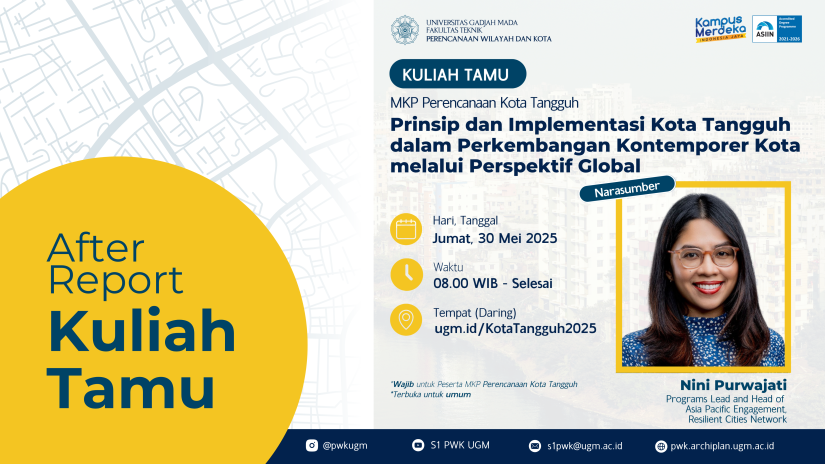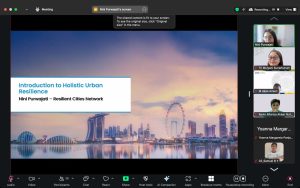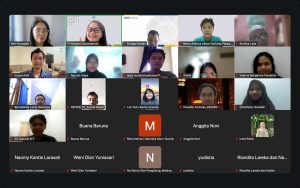
Yogyakarta, May 30, 2025 – The Undergraduate Program in Urban and Regional Planning at Universitas Gadjah Mada held a guest lecture on May 30, 2025, with the topic “Principles and Implementation of Resilient Cities in Contemporary Urban Development through a Global Perspective.” The lecture was conducted online and open to the general public.
This session invited Nini Purwajati, Programs Lead and Head of Asia Pacific Engagement at Resilient Cities Network, as the speaker to share her knowledge and experiences related to the concept of Resilient Cities.
Nini Purwajati began the lecture by discussing the concept and implementation of urban resilience in facing global challenges such as climate change, urbanization, and socio-economic crises.
She explained the City Resilience Framework as an analytical tool to enhance a city’s capacity and adaptability. The interconnection among urban systems—such as energy, water, transportation, and green spaces—and how vulnerabilities in each aspect affect one another were highlighted as essential areas for analysis.
Based on a case study of Yogyakarta City, it was shown that the city faces high levels of stress and acute shocks, including earthquakes, floods, and the Covid-19 pandemic, which exacerbate its vulnerabilities. Therefore, integrated solutions are needed, such as urban agriculture, strengthening local institutions, and post-disaster recovery strategies.
The speaker emphasized the importance of data and information, cross-sectoral coordination, and active participation from both communities and local governments in resilient urban planning. In addition, urban biodiversity was also mentioned as an essential part of long-term urban resilience strategies.
Examples of integrated urban systems implementation include urban waste management and city resilience in Semarang and Bandar Lampung, as well as the Green Plan in Singapore as a strategy for urban biodiversity initiatives.
This guest lecture aligns with five Sustainable Development Goals (SDGs):
SDG 7 (Affordable and Clean Energy),
SDG 9 (Industry, Innovation, and Infrastructure),
SDG 11 (Sustainable Cities and Communities),
SDG 13 (Climate Action), and
SDG 15 (Life on Land).


